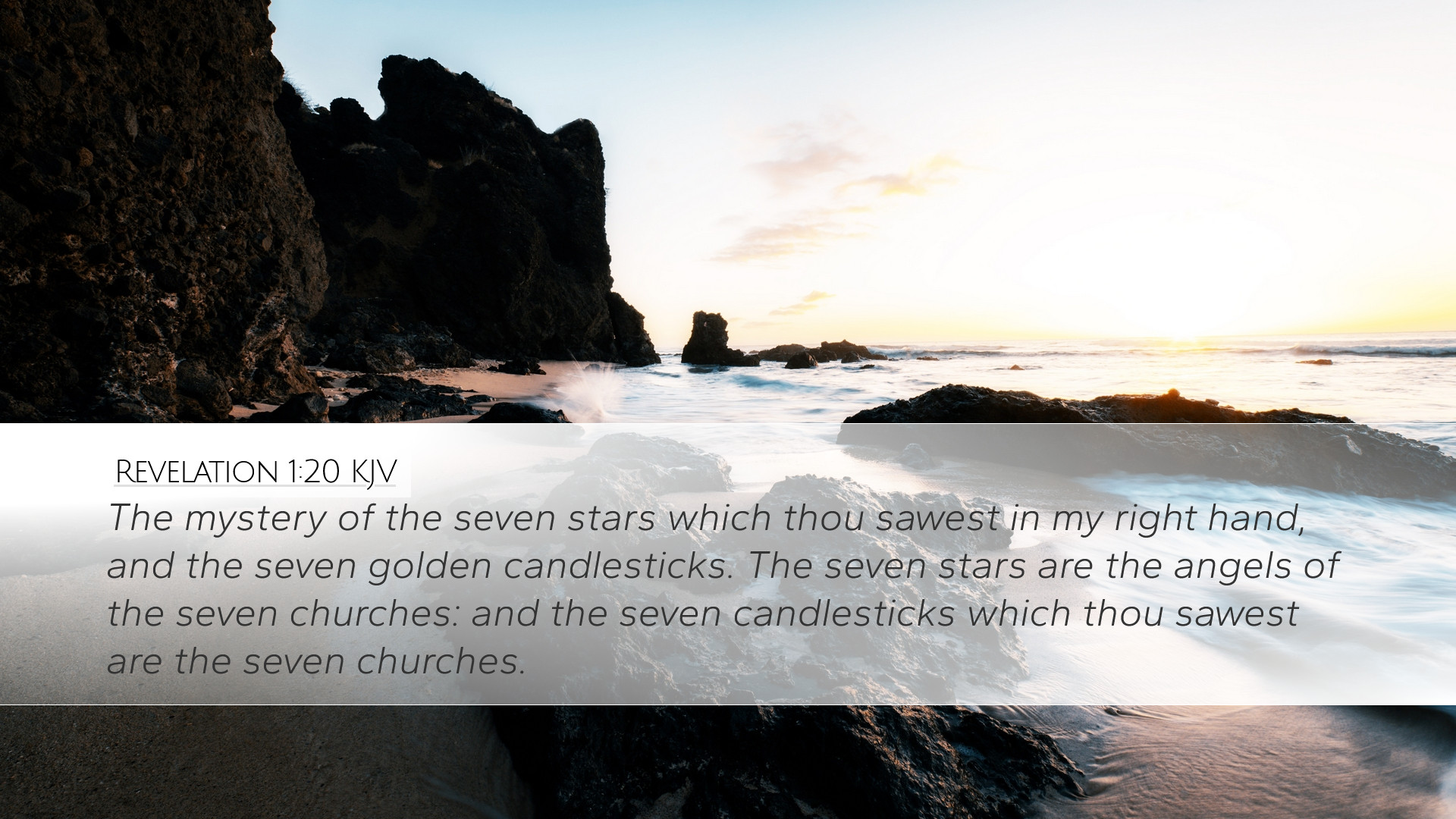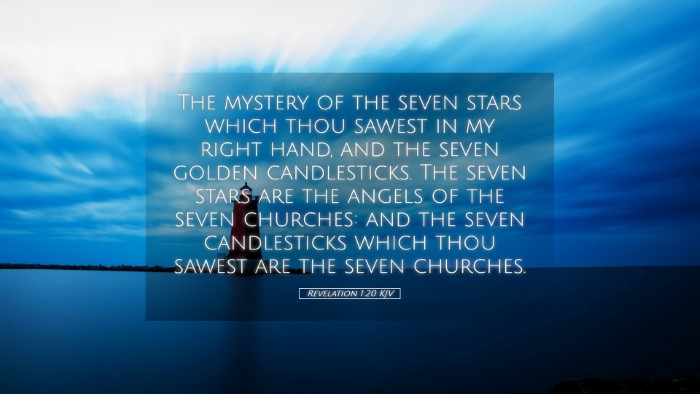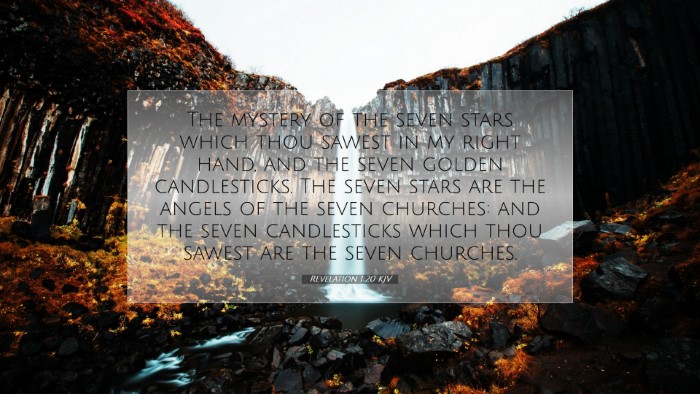Commentary on Revelation 1:20
Scripture: "The mystery of the seven stars which thou sawest in my right hand, and the seven golden candlesticks. The seven stars are the angels of the seven churches: and the seven candlesticks which thou sawest are the seven churches."
This verse concludes the vision of the glorified Christ and provides profound insights into the symbolism used in the Book of Revelation. Several respected public domain commentaries elucidate the theological and practical aspects of this scripture.
Understanding the Symbolism
According to Matthew Henry, the mystery of the seven stars and the seven golden candlesticks signifies the relationship between Christ and His Church. The stars represent the angels (or messengers) of the churches, implying a direct connection between heaven and the congregations on earth. These angels could either signify human leaders or angelic protectors of the congregations.
Albert Barnes expands on this by suggesting that the "seven churches" represent a complete picture of the Church in general, indicating that the messages delivered through Revelation apply not just to the specific churches in Asia Minor but to the global Church throughout the ages. The use of the number seven symbolizes completeness and perfection, aligning with the overall themes of Revelation.
The Nature of the Churches
The "seven golden candlesticks" symbolize the churches themselves, illuminating the role of the church as a light in the darkness of the world. Adam Clarke notes that the candlestick's beauty and brilliance connote the holiness and spiritual radiance that should emanate from the church as it centers on Christ. The connection between the stars and the candlesticks highlights that Christ is intimately involved with His Church—the angels are in His hand, emphasizing their protection and authority.
Theological Implications
The depiction of Christ holding the stars in His right hand signifies His sovereignty over His messengers and His Church. This imagery reassures believers of His continuous presence and guidance. According to Matthew Henry, this portrayal signifies Christ's support for His Church against external and internal adversities. The ultimate authority of Christ is underscored throughout the Book of Revelation, making it clear that He governs the spiritual realm and the churches.
In light of this, Albert Barnes emphasizes that the health and vitality of the Church are contingent upon its adherence to Christ’s guidance. The candlesticks being golden suggest that the churches are precious to God and must shine with the reflected glory of Christ. This challenges modern congregations to evaluate their brightness and impact in a world often shrouded in spiritual darkness.
Ecclesiastical Applications
Moving towards practical implications, this verse serves as a reminder for church leaders to recognize their roles as representations of Christ's authority and care. Adam Clarke reminds us that pastors and church leaders must be committed to their spiritual responsibilities, aware that they are held accountable for the spiritual condition of their congregations.
Matthew Henry further asserts that the real success of churches lies not in their outward appearances or achievements but in their spiritual connection with Christ. The health of a church is reflected not merely in numbers or activities but in its faithfulness to Christ and His commandments.
Conclusion
The insight derived from Revelation 1:20 encourages pastors, students, theologians, and Bible scholars to appreciate the profound mystery of the relationship between Christ and His Church. By contemplating the symbolism of the seven stars and seven candlesticks, believers are called to recognize their roles in the divine economy and their responsibility to maintain a vibrant witness in the world.
As churches today navigate the complexities of faith in contemporary contexts, the assurance of Christ's presence and authority, as well as the call to be shining lights in the world, remains as relevant now as it was in the time of John’s revelation. May all who serve in ministry be inspired to lead with diligence, uphold the truth of the Gospel, and reflect the glory of Christ in all that they do.


